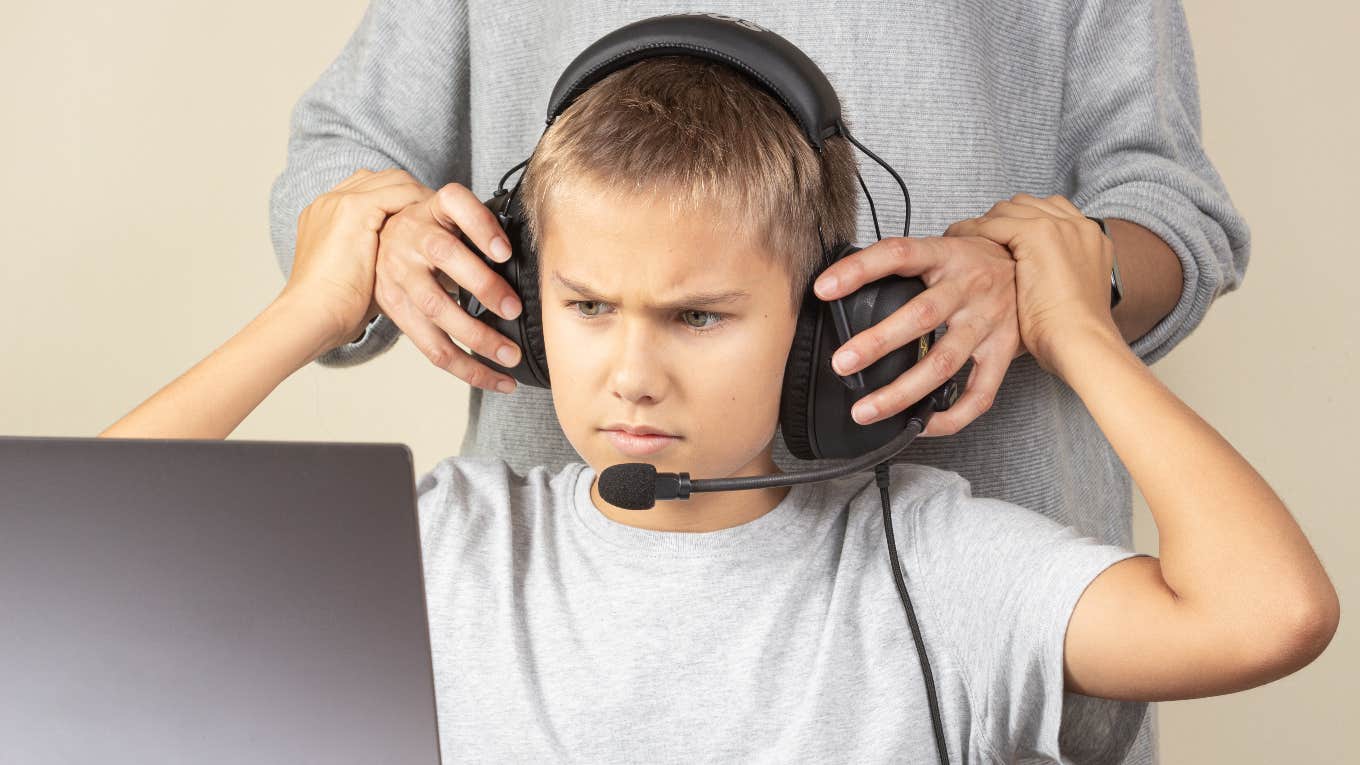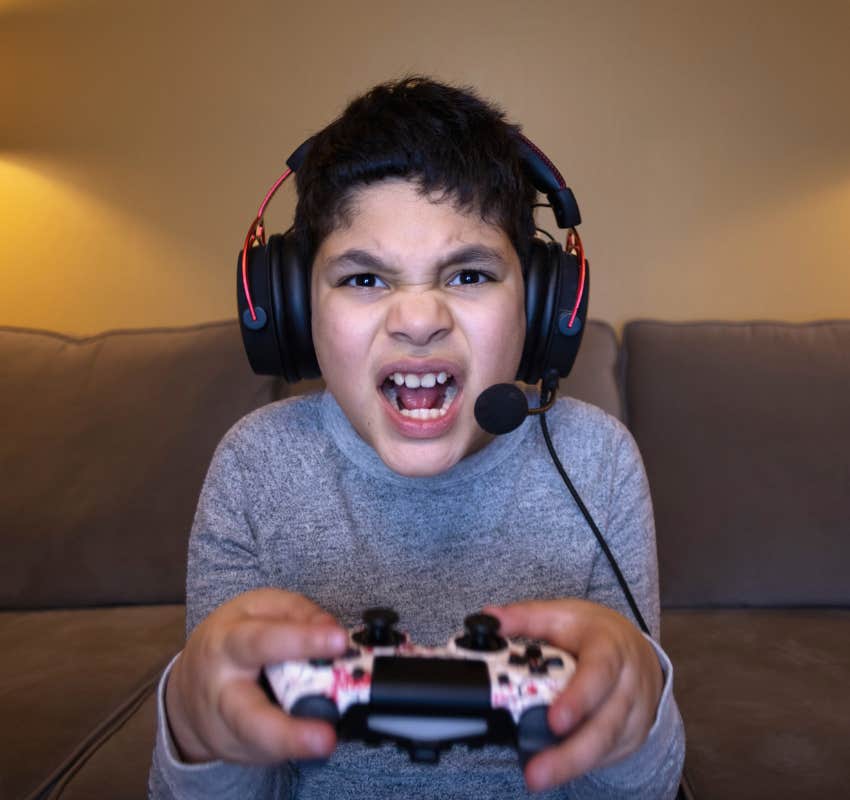6-Year-Old Lashes Out At Family Because Of A Video Game — ‘I Took His Electronics Away & Now He Hates Us’
Kids can easily get addicted to their screens.
 Veja / Shutterstock
Veja / Shutterstock It can be challenging to manage your child’s temperament — every kid throws a tantrum from time to time. However, one dad was especially shocked by the way his 6-year-old son responded after they took his video games away.
The dad took to Reddit asking for advice after his son’s video game-related 'meltdown.'
Posting in the r/parenting subreddit, the dad explained he and his wife overheard their son crying out of frustration while playing a video game.
"My wife went in to calm him down, and he yelled, 'Get your [expletive] hands off of me!'" the man recalled.
Shocked, the dad rushed into his son's room and informed him he was not allowed to speak to anyone like that, especially his parents. He then took away his electronics, letting his child know he wouldn’t be getting them back for "quite some time."
 JasonDoiy / Canva Pro
JasonDoiy / Canva Pro
“This blew up into ‘I hate my family, everyone hates me,’” the dad explained. “He woke up his 2-year-old brother in the process [who] was terrified listening to what was going on.”
As many parents of video game lovers know, video games can bring up some unruly behaviors and temperamental reactions in kids. Because of this, many parents recommend monitoring and restricting their kids’ video game time.
“This isn’t the first time he’s said the ‘hate’ stuff, but the ‘get your hands off me’ was a complete shock,” the dad wrote. “We don’t speak to anyone that way in this house, and I’m beside myself trying to figure out where this behavior is coming from.”
Reddit users suggested the boy’s reaction was indicative of an addiction.
Video games can be fraught territory for kids, or anyone for that matter, to enter, and parents must tread carefully.
Depending on the game, video games can introduce violent and negative themes into the mind of a child. They’re also highly addictive, especially for kids who don’t understand the significance of taking breaks. They’re prone to detach from reality, immersed in this digital world, and lose their sense of what’s really important.
One dad of three kids offered a response the kid’s parents can use to neutralize his mood.
“If screens make you that angry or sad, maybe it’s better if you don’t have screens because I don't want you to be angry or sad,” he wrote. “Let's take a break for a while and try screens again in a week."
Another parent underscored this common reality for many kids of this age.
“To put into context, my son … doesn’t play ANY video games,” the parent wrote. “[He] gets 30-45 min of just educational TV per day (if he’s lucky) and will occasionally still react like this with a meltdown when we turn it off.”
“TV brain is real,” they added. “And with video games, it’s 10 times worse. They’re too young to manage that much dopamine input on their own.”
Kids can easily become addicted to the accessibility of video games, television, and screen time in general, especially if parents introduce these devices to them at an early age.
It’s common for kids to react aggressively after the absence of stimulation.
In today’s era, most parents allow their kids to use electronics regularly, as it keeps them stimulated and gives parents a chance to disconnect and focus on other responsibilities. While this is an inevitable reality of the world we live in today, parents don’t realize how this is significantly harming and inhibiting the development of their kids.
“They need boredom,” another person commented on the post. “It helps them learn how to be creative on their own. Constantly filling their time to keep them busy feels like you’re helping, but actually does children a disservice.”
While the parents in the post seemed to have the right idea of taking their son’s video games away following his unruly aggression, six may indeed be too young of an age for kids to start playing video games, as they aren’t yet aware of their limits.
"Screen time is a hard thing to quantify," Michael Rich, a pediatrician and director of the Center on Media and Child Health at Boston Children's Hospital told NPR. "What is easier to quantify — and probably more in line with what is developmentally optimal — is quantifying non-screen time."
It’s natural for kids to throw their tantrums and get upset when they don’t get their way, but this behavior is amplified when parents aren't mindful of how much screen time their kids get.
No matter how useful electronics may be for parents who are just seeking a break, the truth is, when raised in the absence of screens, kids have a creative and imaginative way of keeping themselves occupied and stimulated. It’s much more beneficial for their mental and emotional development when this stimulation comes from them, rather than a screen.
Francesca Duarte is a writer on YourTango's news and entertainment team based in Orlando, FL. She covers lifestyle, human-interest, adventure, and spirituality topics.

